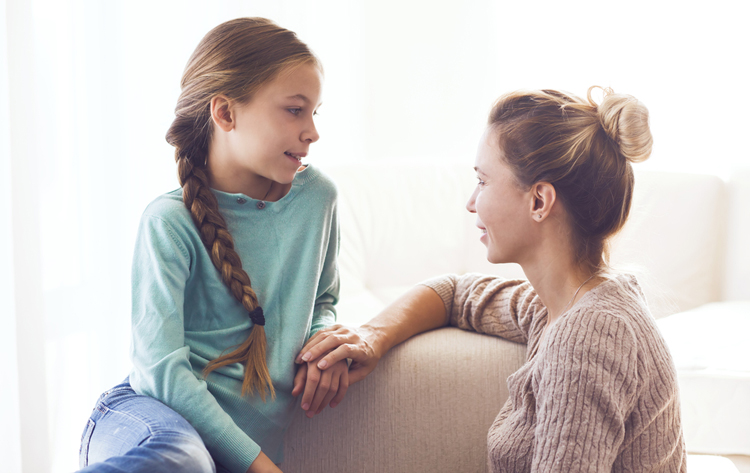Let’s not kid ourselves—our tweens have heard things about the sex and they want to know more.It’s the very nature of being a tween, of being in a peer group who are all exploring and engaging with the world around them in different ways.
Planned Parenthood, the nonprofit provider of reproductive health services, has partnered with Ontario schools for 10+ years to bring sex-related answers to kids.When Planned Parenthood is in the classroom, kids can ask experts what they want. Anonymously.Free of judgement.Which is pretty awesome.But this article in the Globe and Mail shed some light on what we, as adults, might be able to learn from the experience too—and the results suggest that it could be high time we change the way we teach kids about sex.The article gives readers a look at some of the questions kids asked in one particular session.The questions showed that tweens are interested in finding out about a lot more than just anatomy and baby-makin’.They’re thinking about love, dating, breakups, jealousy, intimacy; they’re wondering if they’re “normal.” The president of Planned Parenthood Ottawa, Lauren Dobson-Hughes, shares a few specific ones: “How to handle a breakup?What do you do when someone’s broken your heart?What do you do when someone’s being possessive or jealous?””The questions are more basic than you might expect from a 13-, 14-year-old,” said Dobson-Hughes.”[The questions] indicate that perhaps some of the basic anatomy and understanding of physiology—how our bodies work—has not been taught to them.” And even if they are being taught these things in the classroom, maybe kids just aren’t as interested in them as they are in the big, complex topics they asked about.Maybe there’s a disconnect happening in their minds between those topics and topics of anatomy.Because even for us adults, that’s the part where things can get murky, which Dobson Hughes pointed out.She mentions that these issues tie into the mental-health side, which of course, does have lot to do with one’s sex life.These are much bigger concepts and lead to much bigger conversations, than the one of anatomy.Planned Parenthood teaches that mental health and sexuality go hand-in-hand, but many Canadian provinces do not.Each Canadian province follows its own sex-ed curriculum, so when and even how certain topics are taught differs greatly across the country.Ontario’s curriculum hadn’t been updated since 1998, but finally got a reboot in 2015 in order to bring it up to speed with most other provinces across the country though some parents have considered too much, too soon.The new Ontario curriculum does address breakups, which most of the other provinces do not discuss.Ontario kids get to talk about how to go about them respectfully, and also sexting and cyberbullying.So why don’t all provinces talk about these things?It’s obviously not the simplest cut and dry material to teach—and it asks teachers to go pretty deep, get comfortable with the idea of teaching what could be seen as uncomfortable content and be prepared for anything that might pop up in that kind of a conversation.And it asks the same of students.And parents.But what’s the price if we don’t teach kids about the topics they’re asking about?They’re left wondering about the answers to some really important questions—at a really important time—and that doesn’t help anyone.

What about real porn sex?